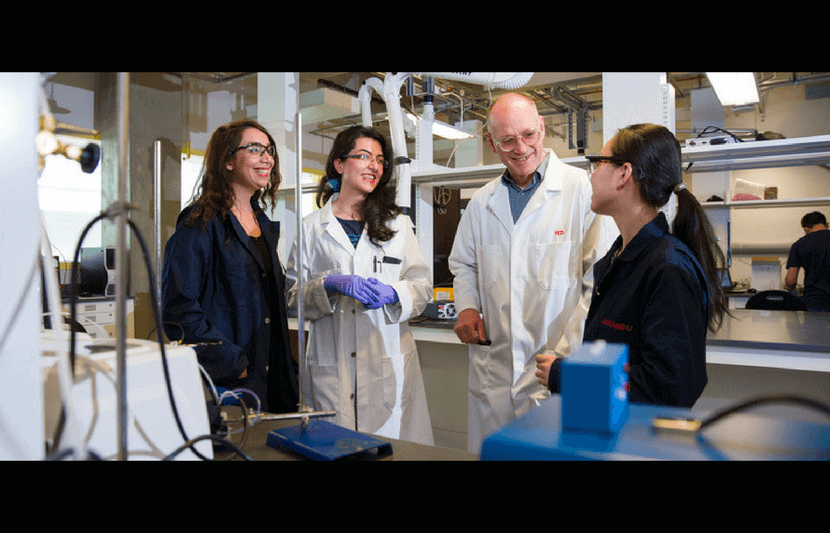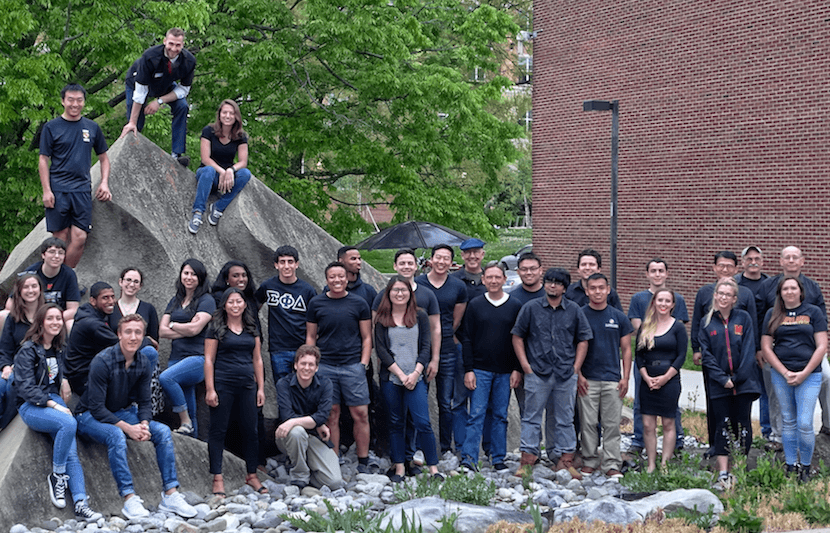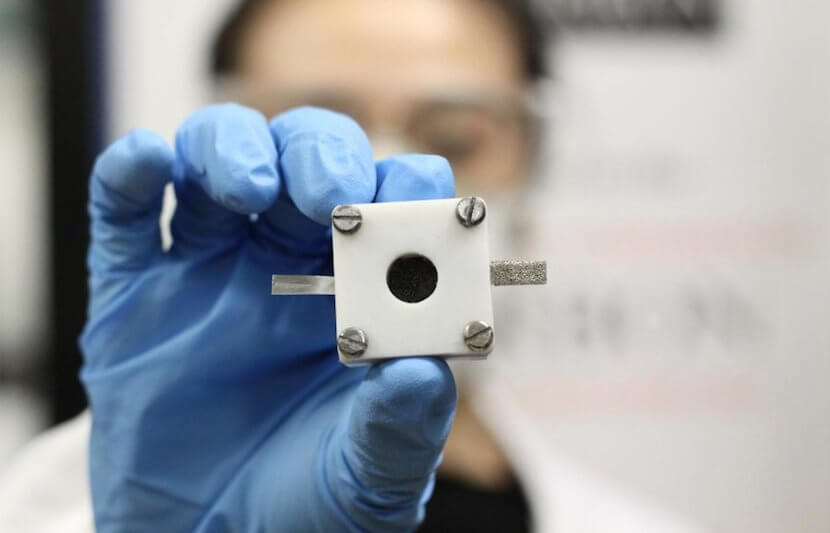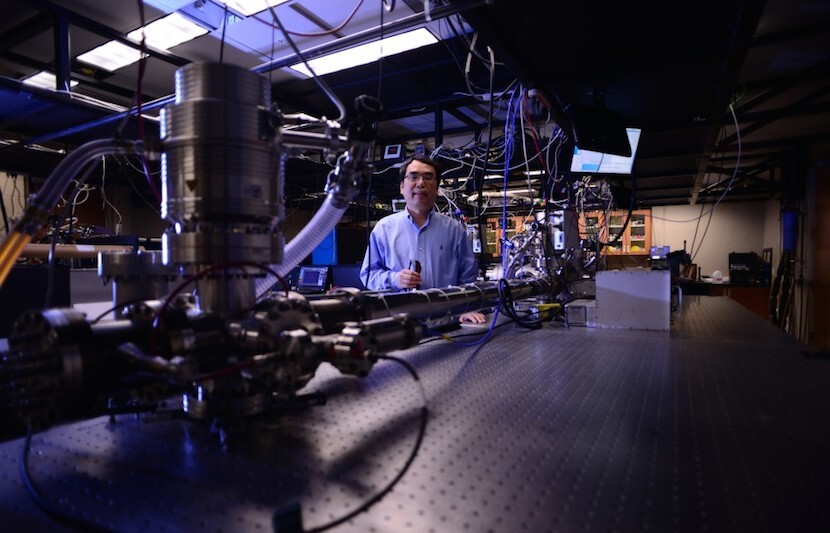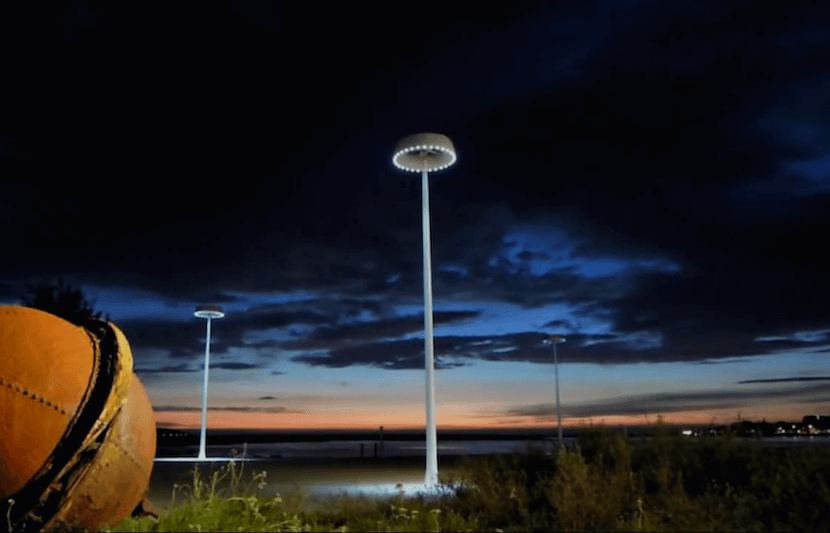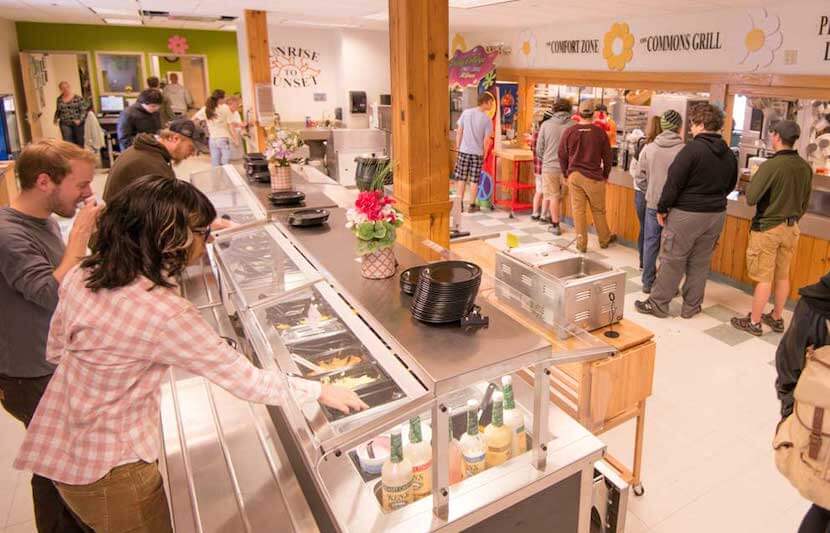-
University of Calgary Leads Program to Develop Innovative Renewable Energy Solutions
The University of Calgary in Canada is leading a new, collaborative program that would “prepare students to lead a new kind of energy future.” Two other universities in Canada — the University of Waterloo and the University of Alberta — are also involved in the pan-disciplinary research and training program. The program, which is made… Read More
-
UMD Student Team Wins Solar Decathlon Award for Sustainable ‘House as a Kit of Parts’
A student team from the University of Maryland placed first in the U.S. and second in the world at the Solar Decathlon 2017, which is sponsored by the U.S. Department of Energy, for its entry of a prototype energy-efficient, solar-powered house, named resilient Adaptive Climate Technology (reACT). The decathlon is an annual, international competition that… Read More
-
Solar Energy from Algae? Researchers From Yale, Princeton, Lincoln and NASA Think So
Billions of years before the invention of solar panels, algae was already harnessing the sun’s energy. Because algae has been optimized for light absorption through its evolution, the key to more efficient solar panels may be unlocked by working with algae. That’s what a team of researchers from Yale University, Princeton University, Lincoln University and… Read More
-
Thompson Rivers University Celebrates New Solar Compass Walkway, a First in Canada
Thompson Rivers University (TRU) is celebrating the grand opening of its new solar compass walkway today. This is Canada’s first solar walkway. The solar compass walkway will gather enough energy from the sun to produce about 10,000 Kilowatt (kW) hours of electricity annually. The 75-foot walkway features thick glass plates, including 64 super-durable solar panels.… Read More
-
Fuel Cell Breakthrough by Washington University Engineers Could Be ‘Game Changer’ for Battery-Powered Devices
An engineering team at Washington University in St. Louis, Missouri has developed a new method to look at the rate of oxidation (or central breakdown) in fuel cells, which could revolutionize battery-powered devices, such as laptops, cell phones, and automobiles. Fuel cells generate electricity by typically using hydrogen as fuel and air as an oxidant,… Read More
-
MIT Researchers Discover New Method to Control the Stickiness of Freezing Droplets
Traditionally, when liquid droplets come in contact with a surface, they either stick to it, peel away, or bounce off. Understanding how droplets react to specific surfaces is very important for de-icing freezing rain, developing superior thermal spray coatings, and creating an effective additive process using molten metal. Now, a team of MIT researchers has… Read More
-
Universities Lead Battle to Reverse Climate Change
Two years ago, at the 70th Session of the United Nations General Assembly, 193 member states adopted the Sustainable Development Goals—17 distinct goals designed to eradicate poverty, address climate change, and build peaceful, inclusive societies for all by 2030. With the U.S. pulling out of the Paris Agreement and the recent record-breaking hurricane damage this… Read More
-
University of Sydney and Nanyang Technological University Researchers Develop Zinc-Air Batteries That Make Recharging Easier
A team of chemical engineering researchers from the University of Sydney and Nanyang Technological University in Singapore have developed rechargeable zinc-air batteries that could replace lithium-ion batteries as the power source for electronic devices. Zinc-air batteries, as the name suggests, use zinc metal and oxygen as the source of their power. Zinc-air batteries have many… Read More
-
University of Central Florida Researchers Generate ‘Fastest Light Pulse’ Ever Created
A team of researchers at the University of Central Florida (UCF) has succeeded in generating a 53-attosecond X-ray flash, which is billed as “the fastest light pulse ever developed.” The team beat the record it set in 2012, during which it demonstrated a 67-attosecond extreme ultraviolet light pulse. The recent study is published in Nature… Read More
-
Rhode Island College Uses Solar and Wind Power for Outdoor Lighting and Springboard for New Course
Recent steps taken by Rhode Island College (RIC) confirm its commitment to sustainability. In addition to converting all its dormitories to LED lighting, which will save 517,308 kilowatt hours, RIC has installed several street lamps topped with solar panels and a wind turbine. During the day, the lamps convert sunlight and wind into electricity, which… Read More
-
University of Sheffield Scientists’ Groundbreaking Research, Inspired by Photosynthesis, Paves Way for Future Inventions
We all learned about photosynthesis at some point in our education. We were taught that plants use sunlight to synthesize energy for their survival while creating oxygen for us to breathe. This process, which defines life as we know it, is simple to grasp. But how do plants actually convert light into energy? That’s… Read More
-
Eastern Michigan University Reaches Nearly 100% Energy Self-Sufficiency with New Turbine
As part of its $19.6 million project to become energy self-sufficient, Eastern Michigan University recently installed an energy-efficient turbine in its heating plant. The service of this new 7.8 megawatt turbine will make EMU practically self-sufficient in production of heat and electricity on campus. In furtherance of the Co-Gen (co-generation) project, the university used… Read More
-
Unity College Dining Services Wins Sustainability Award for Zero-Waste Efforts
Unity College prides itself on being America’s Environmental College, and its many sustainability projects, including its quick transition to zero waste in its dining and catering facilities, supports that assertion. The college’s efforts to have zero waste in its dining and catering facilities were rewarded when Dining Services recently won the gold Sustainability Award in… Read More
-
University of Illinois Reaping the Benefit of Student-Funded Solar Farm
Efforts towards environmental sustainability at the University of Illinois are held at top priority. So, when a student group advocated for a campus wind farm and additional student fees to support a move towards clean energy in 2003, they sparked great interest. Due to a $5 million price tag, however, the request was declined by… Read More
-
Universities Affirm Their Commitment to the Paris Agreement
Despite President Trump’s decision to remove the U.S. from the Paris accord, 1,219 U.S. colleges, universities, governors, mayors, businesses, and investors have proclaimed: “We Are Still In.” That number already includes 183 colleges and universities, which is not a surprise, since colleges and institutions have been on the forefront of research and development in the… Read More

alternative energy
-
Universities Affirm Their Commitment to the Paris Agreement
Despite President Trump’s decision to remove the U.S. from the Paris accord, 1,219 U.S. colleges, universities, governors, mayors, businesses, and investors have proclaimed: “We Are Still In.” That number already includes 183 colleges and universities, which is not a surprise, since colleges and institutions have been on the forefront of research and development in the… Read More

